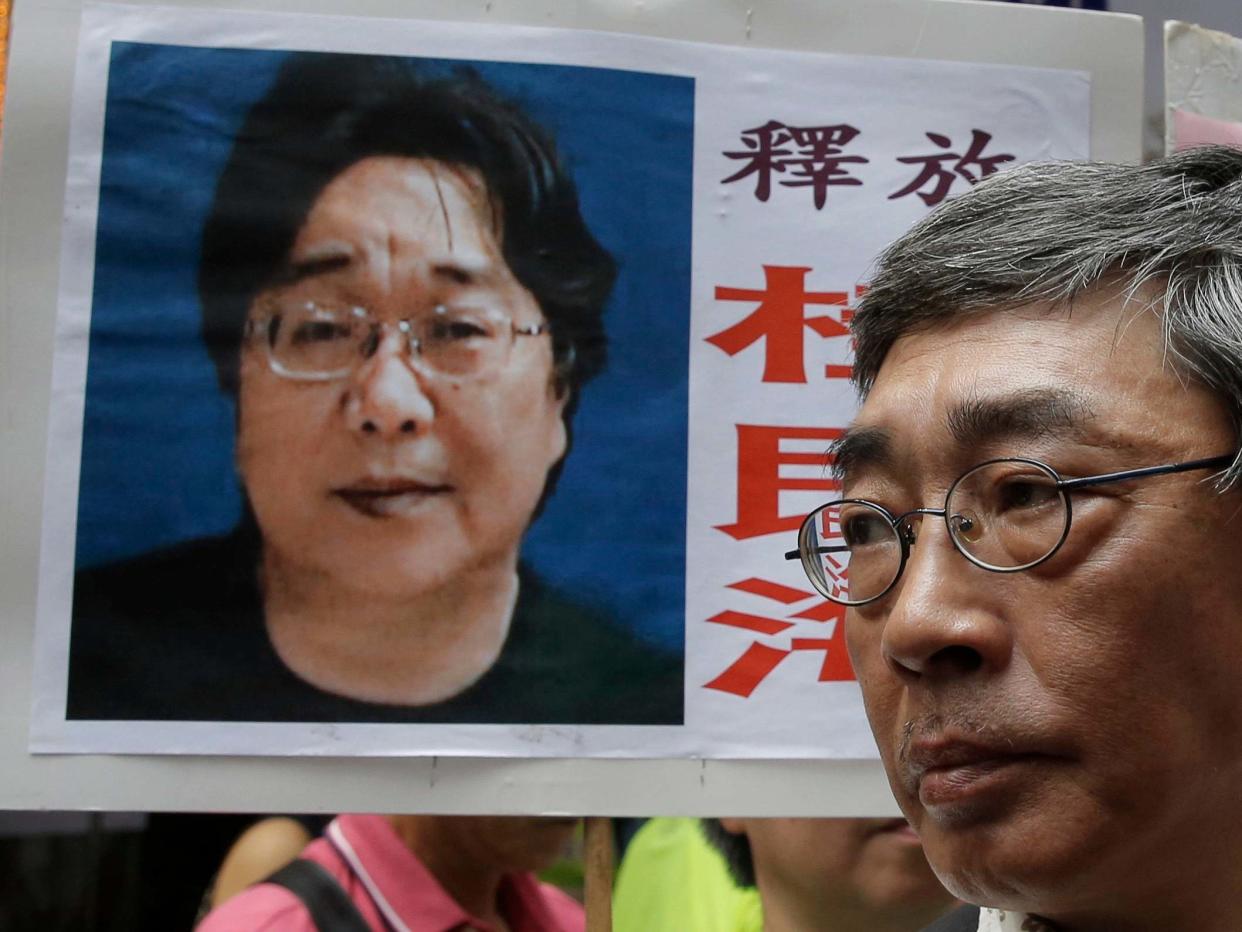China jails Swedish bookseller in Hong Kong for 10 years

A Swedish bookseller has been sentenced to 10 years in prison by a court in China for “illegally providing intelligence” to overseas parties.
Gui Minhai, a naturalised Swedish citizen based on Hong Kong, was one of five people affiliated with Causeway Bay Books, which was well-known for selling books on Chinese politics that were unavailable in mainland China.
All five people disappeared in 2015 and turned up months later in police custody in mainland China. Mr Gui, 55, went missing while he was in Thailand late that year.
He was seen three months later in a controversial public confession broadcast on Chinese state media.
In the so-called confession, Mr Gui said he returned to the mainland and surrendered to the authorities of his own volition.
The other four booksellers were also taken to China and were later freed, but Mr Gui is the only one who remained in detention.
The court claimed Mr Gui applied to reinstate his Chinese citizenship in 2018, effectively renouncing his Swedish citizenship as China does not allow dual citizenship.
A spokesman for China’s foreign ministry told a news briefing on Tuesday that Mr Gui’s rights and interests have been fully guaranteed.
He said consular visits in general were put on hold due to the coronavirus outbreak.
But Sweden’s foreign minister Ann Linde called for his release and referred to him as a “citizen” on Tuesday.
She said: “We have not had access to the trial. The government continues to demand that Gui Minhai be released and that we have access to our citizens to provide consular support.”
The sentencing also drew criticism from human rights groups, who have repeatedly accused China of extracting forced confessions from people it perceives to be enemies of the Communist Party.
Appalled at news about #GuiMinhai, who has committed no crime. But because #China govt just makes up "crimes," he'll spend years in jail. @SweMFA?!? Detained bookseller, jailed for 10 years in China https://t.co/DYruVeremN @hrw_chinese @hrw @manmader
— Sophie Richardson (@SophieHRW)
Amnesty International’s China researcher Patrick Poon, who said it demonstrated that “the Chinese authorities are not letting the coronavirus crisis distract them from repressing dissidents”.
Mr Poon told Hong Kong Free Press: “Unless China can provide concrete, credible and admissible evidence of the crimes Gui has allegedly committed, he must be released immediately and unconditionally.”
The detention of Mr Gui put a strain on bilateral relations between China and Sweden, which were exacerbated in November after Sweden’s culture minister Amanda Lind awarded Mr Gui the annual Tucholsky literary prize despite the Chinese ambassador threatening to ban her from entering China.
At the ceremony in Stockholm, she said it was “crucial for culture and democracy that artists and authors can work freely”.
The Independent has contacted Mr Gui’s daughter, Angela Gui, for comment.
Additional reporting by agencies
Read more
Coronavirus cuts China’s greenhouse gas emissions by a quarter
Coronavirus: Two-thirds of China flights cancelled due to virus fears
Pentagon official leaked ‘top secret’ material to journalist girlfrien

 Yahoo News
Yahoo News 
